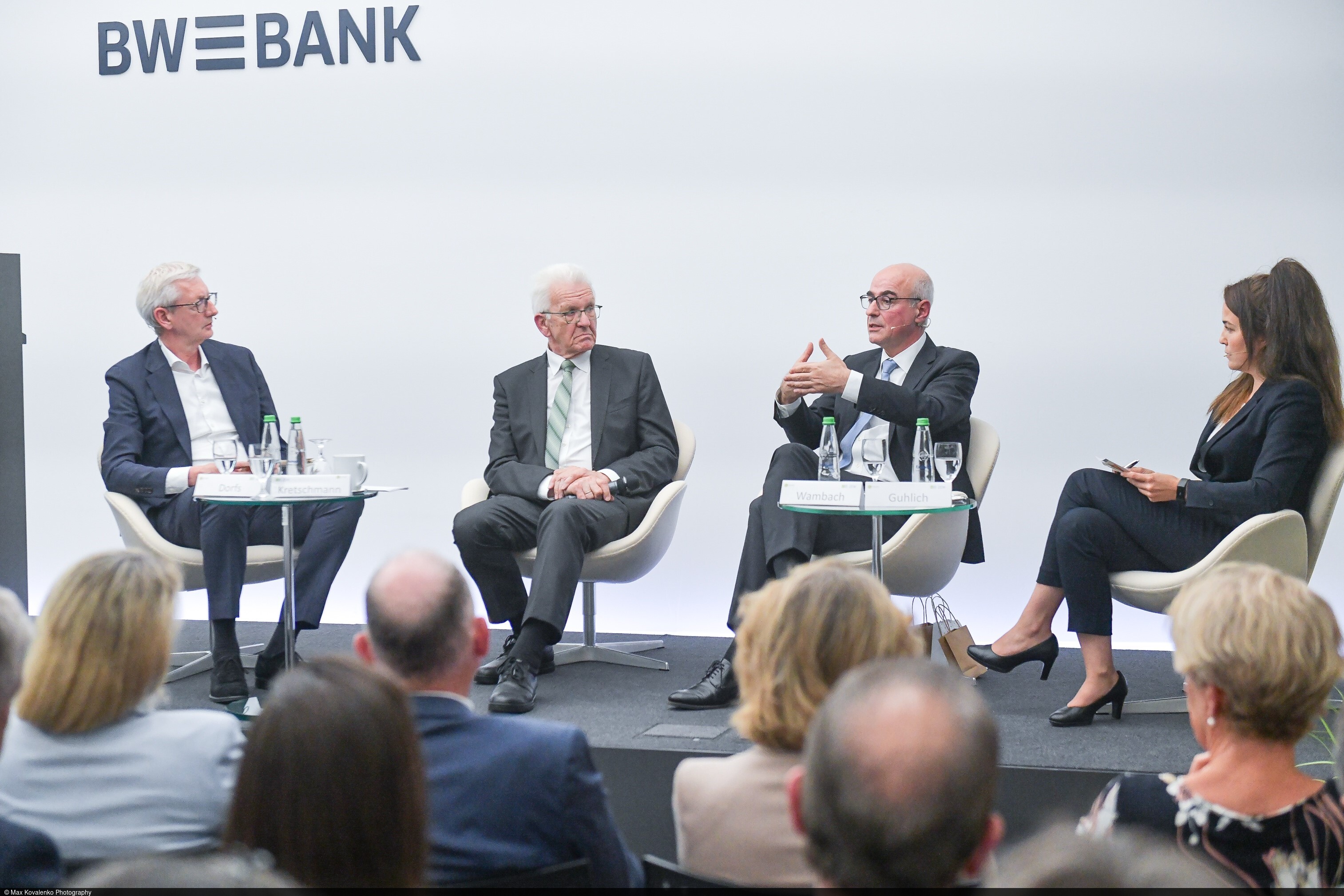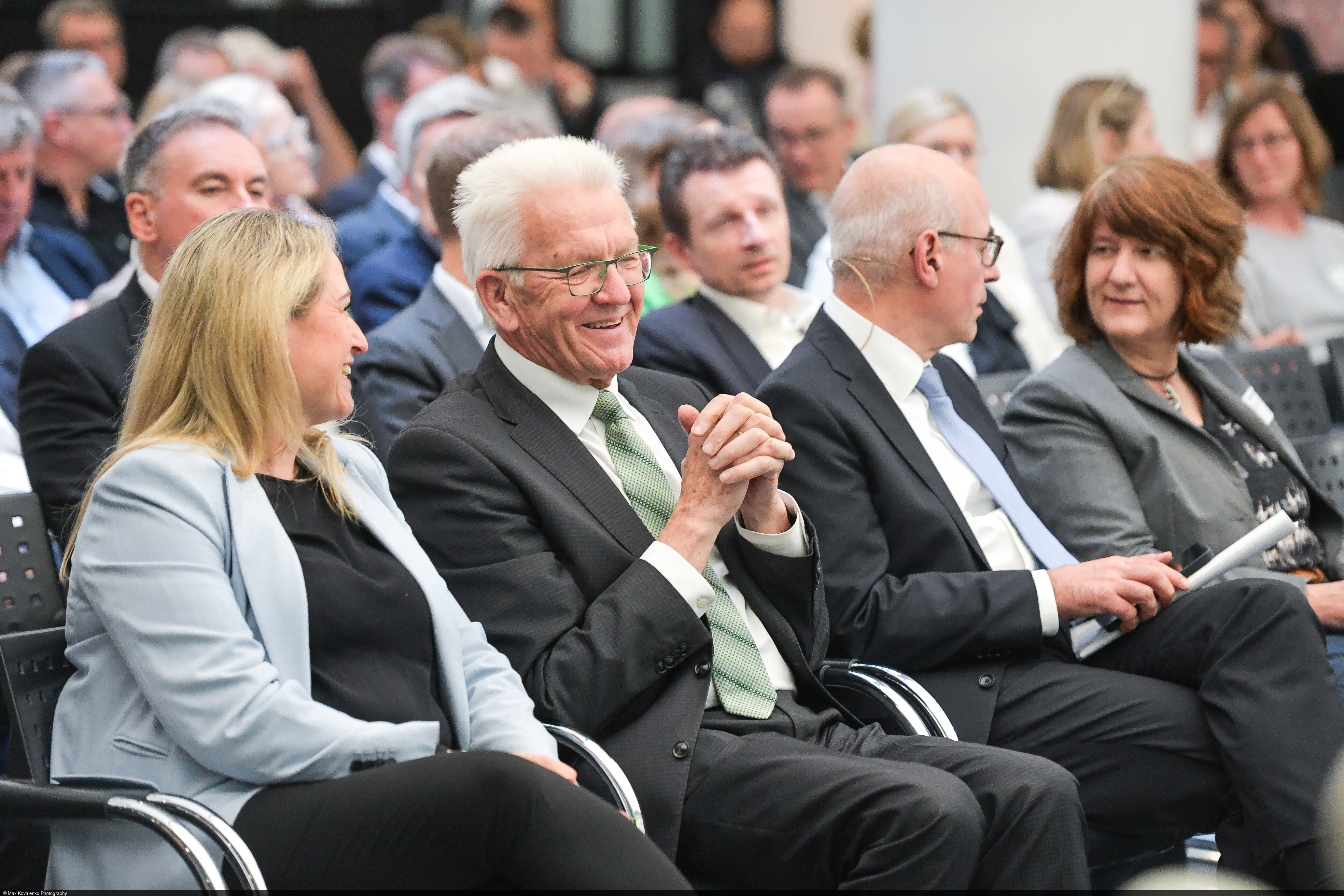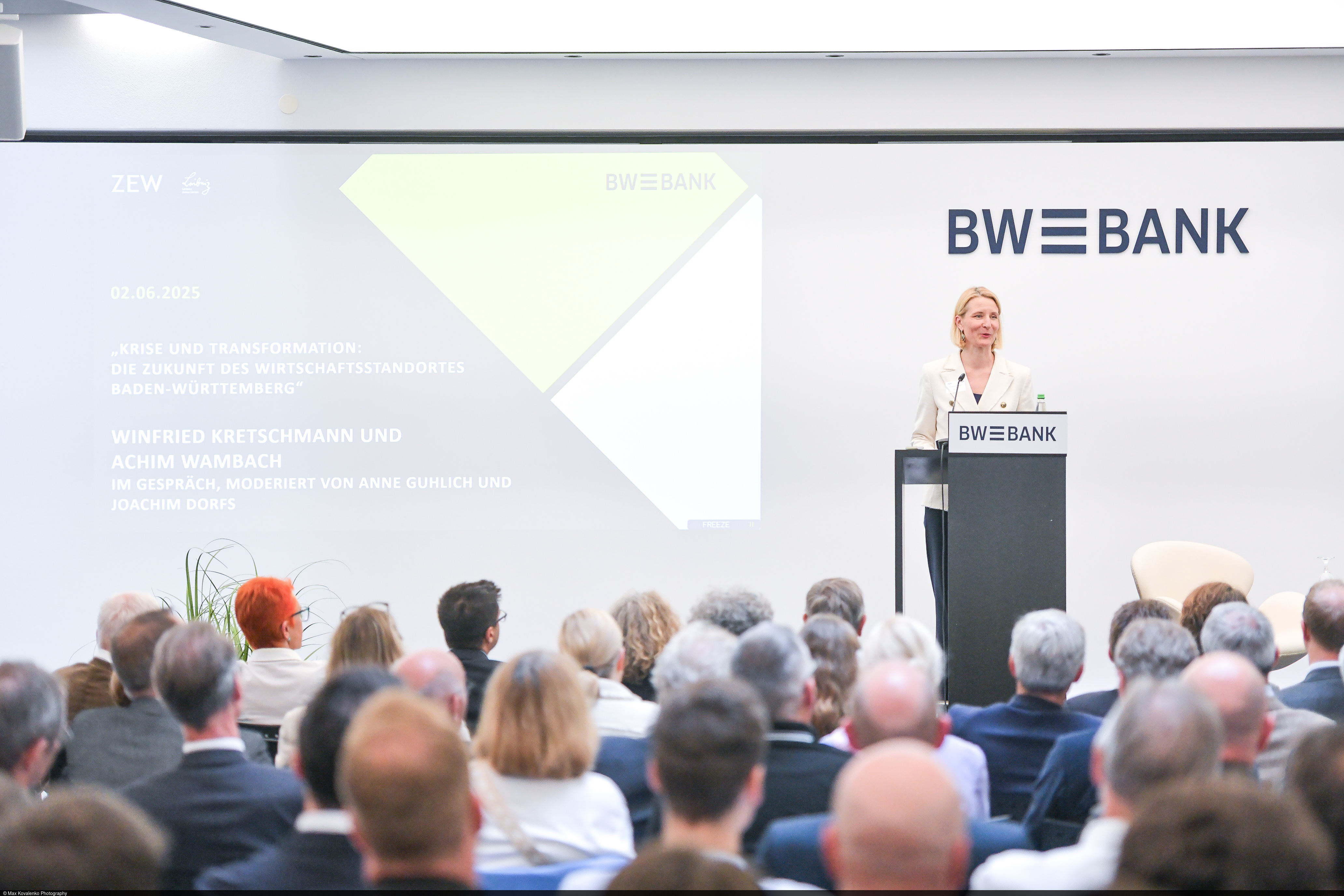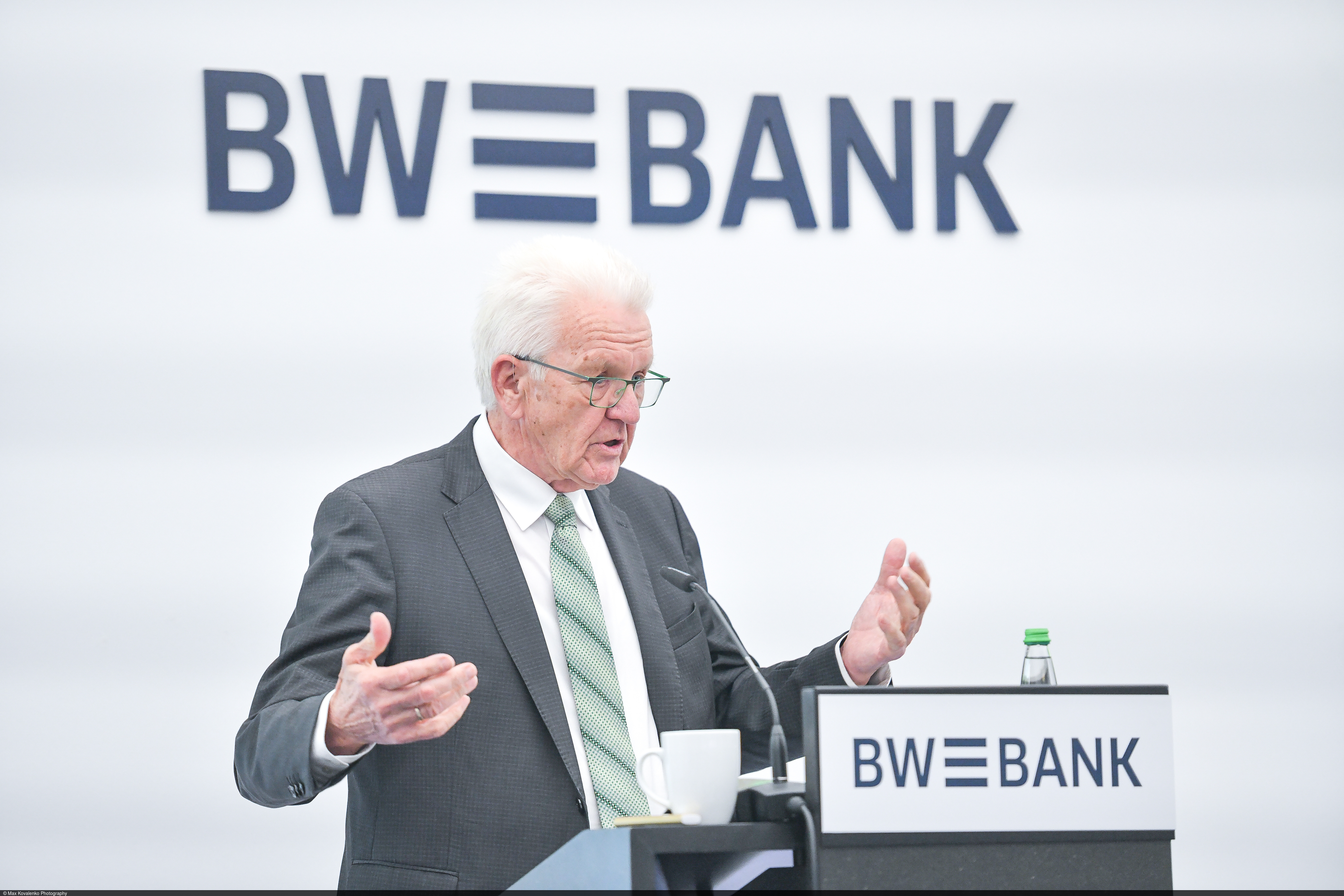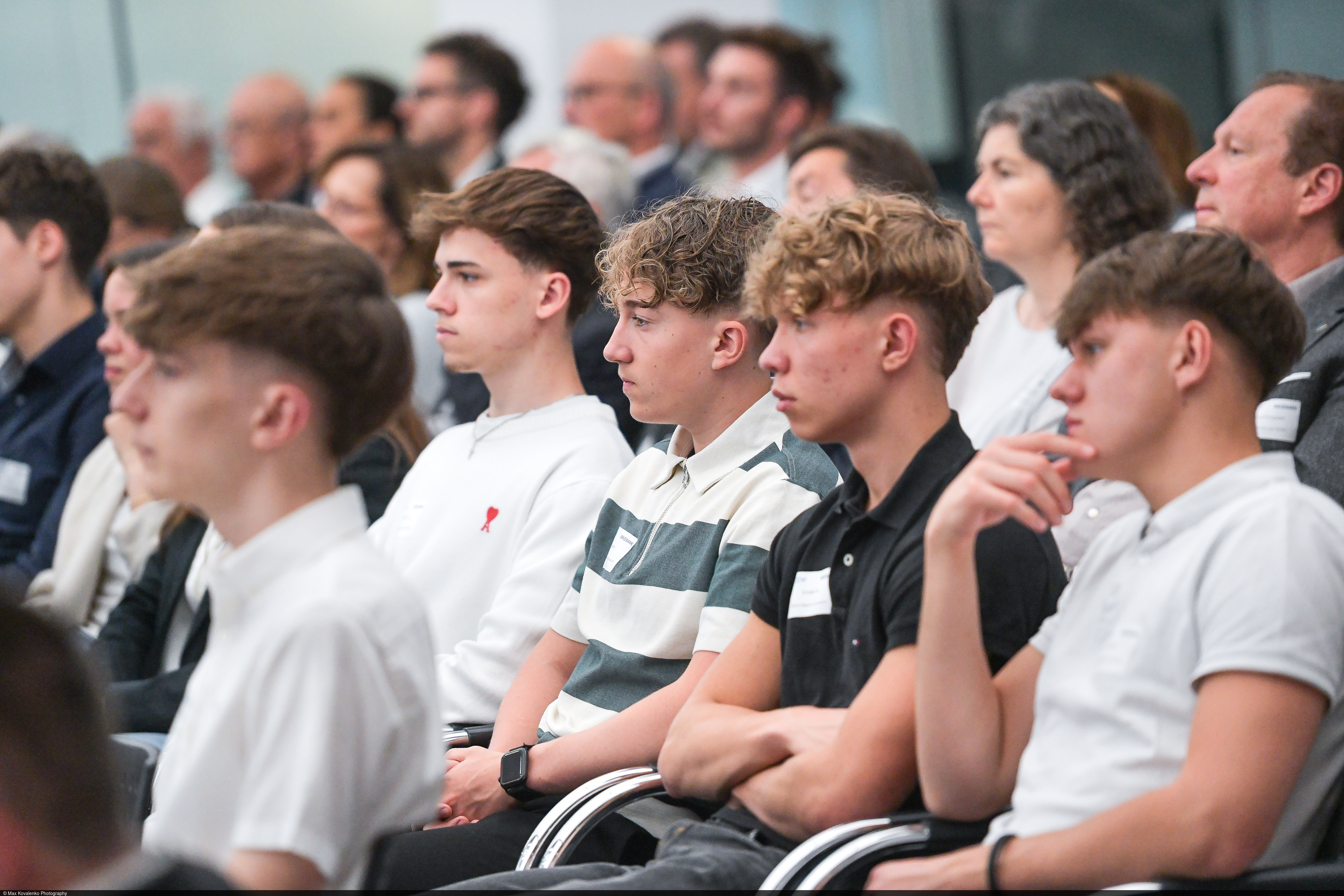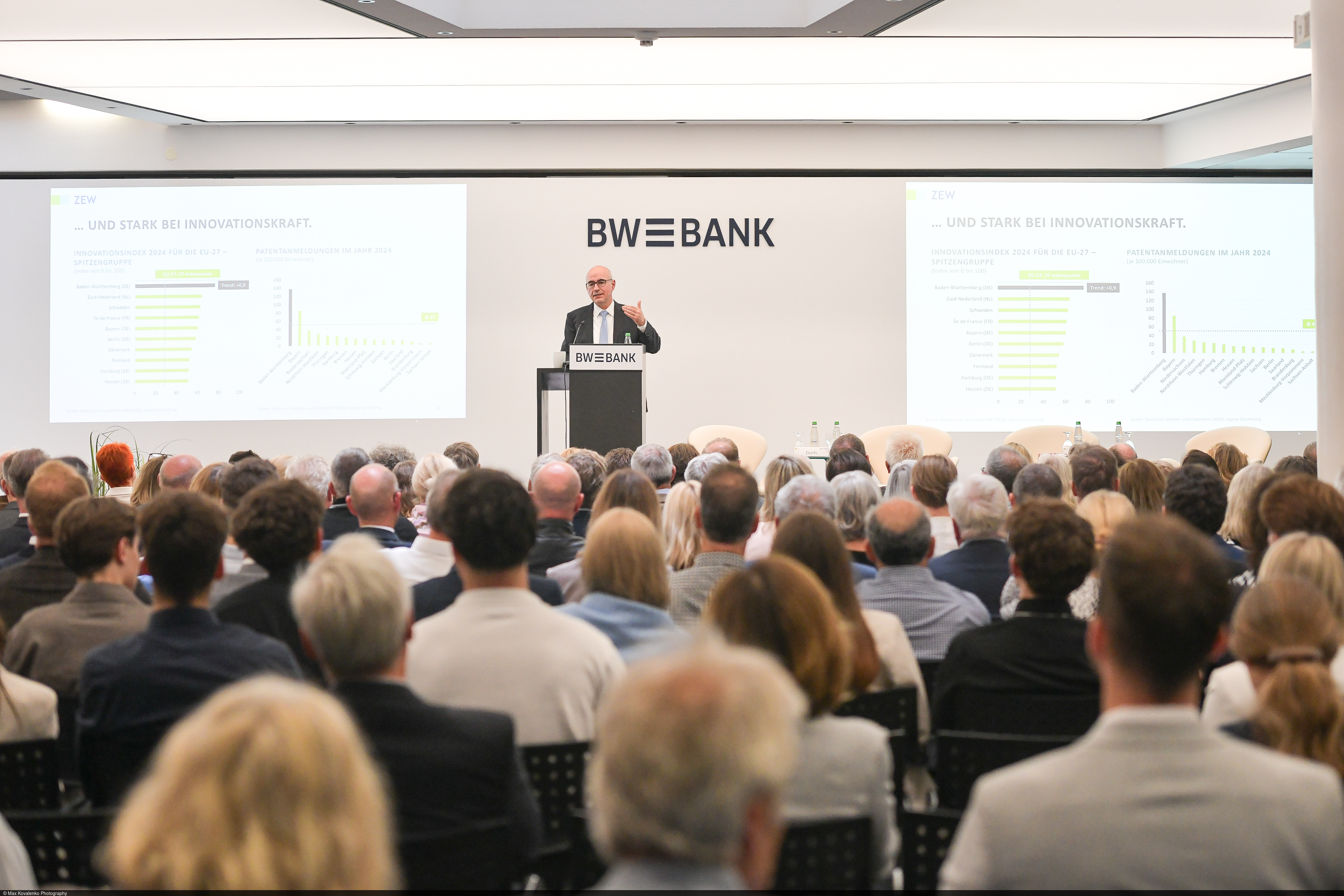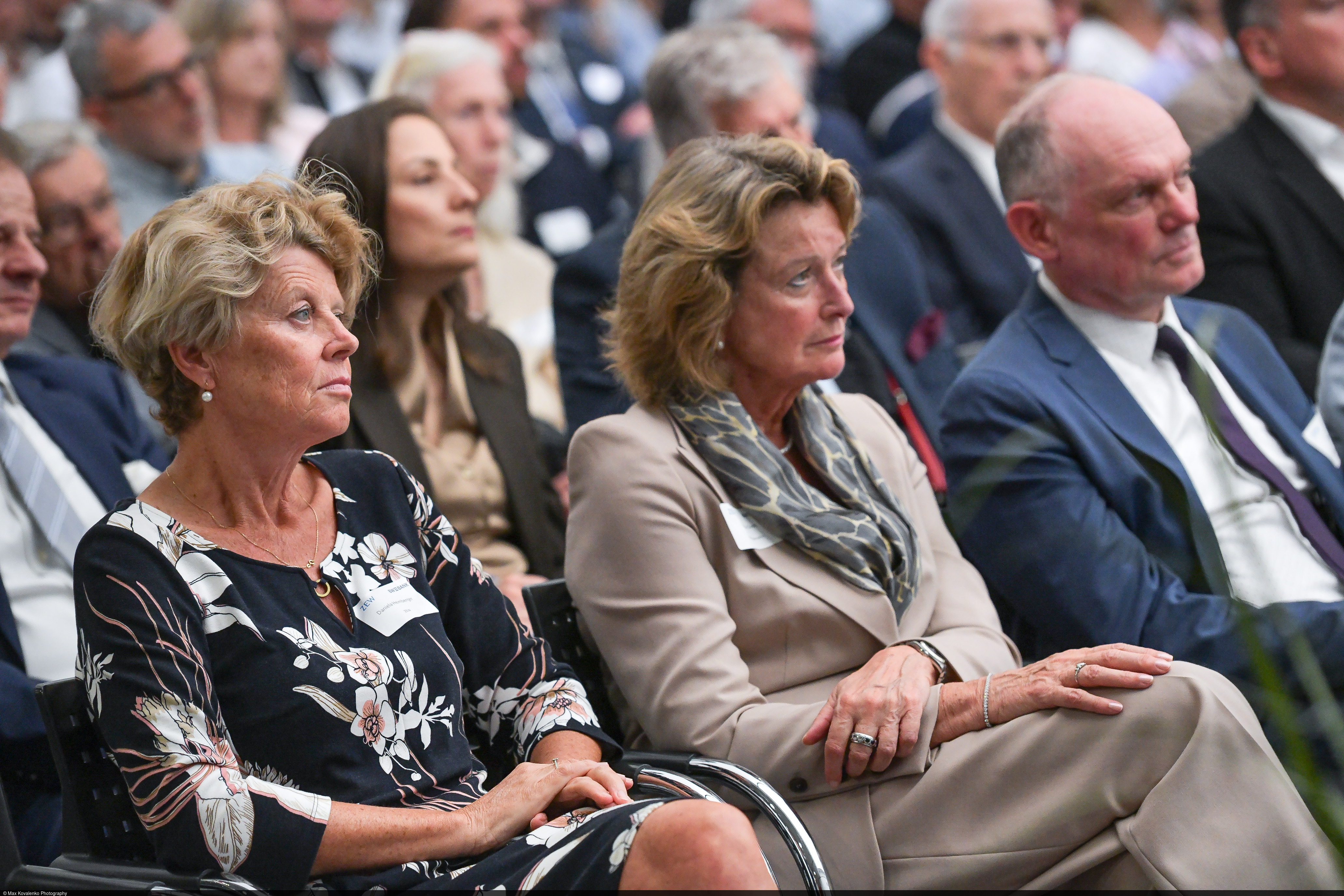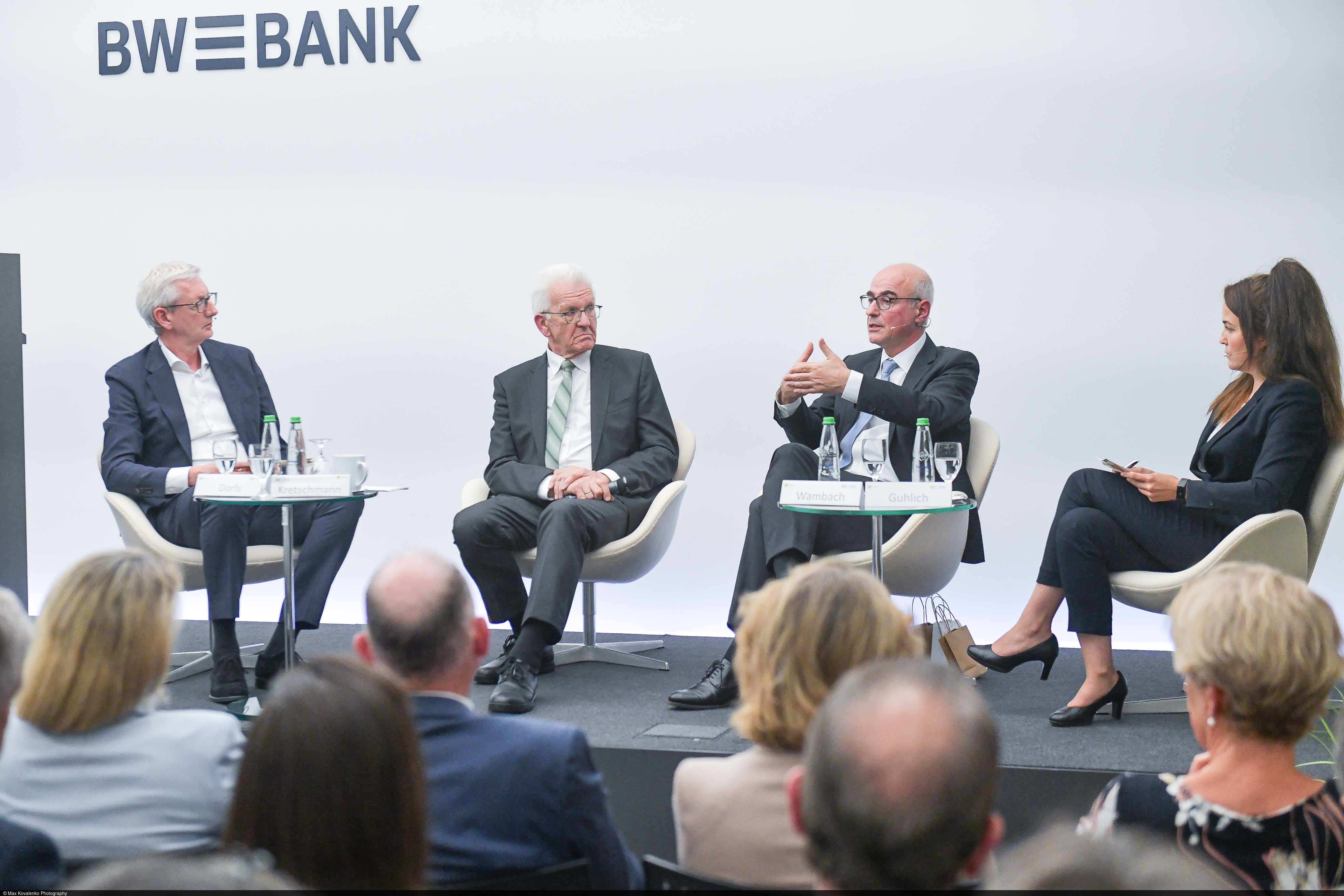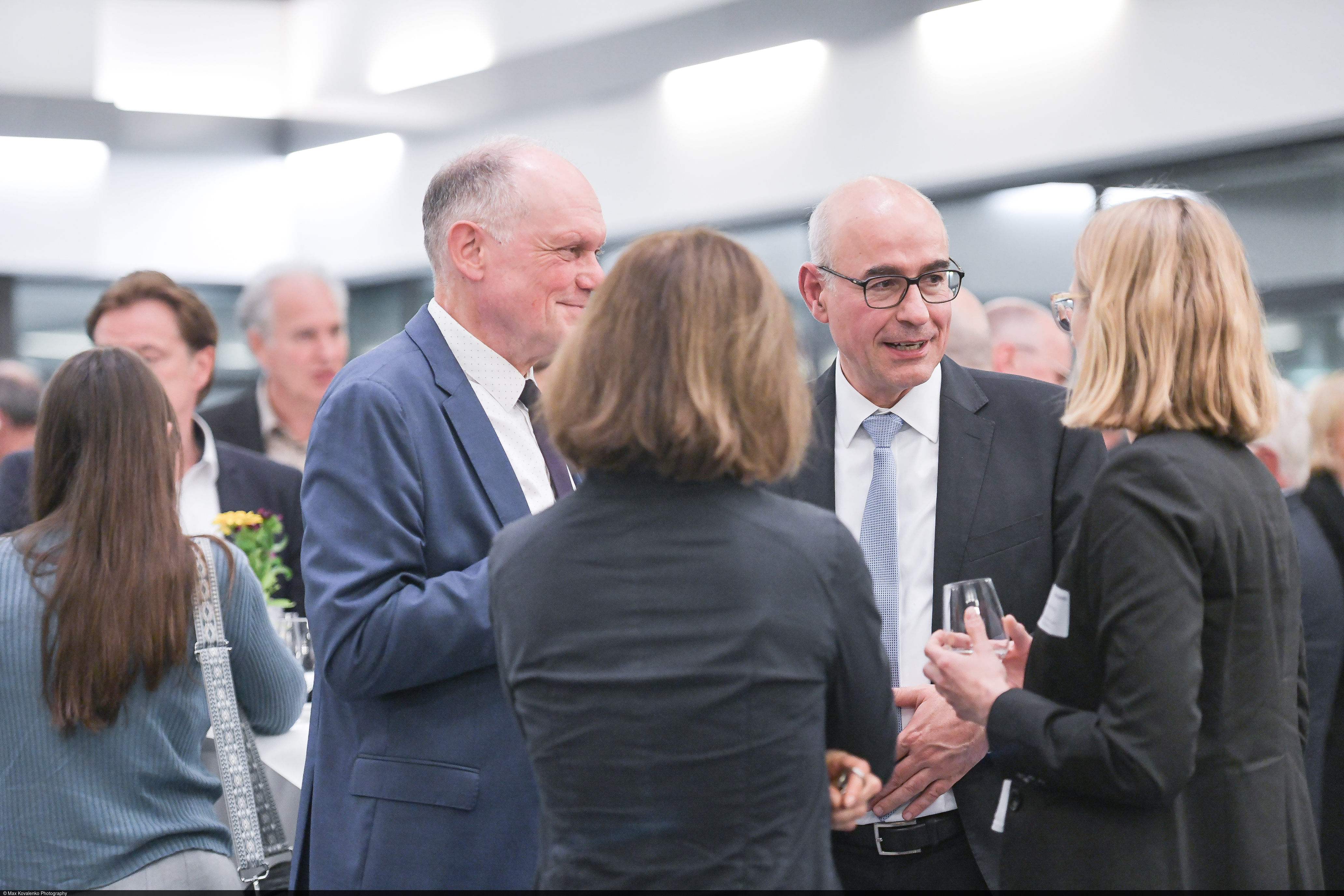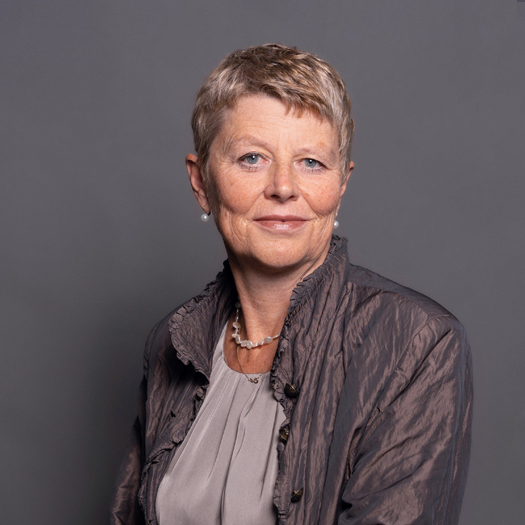Germany’s Path to Competitiveness
EventsMinister President Winfried Kretschmann at “First-Hand Information on Economic Policy” Event in Stuttgart
Baden-Württemberg is one of the most economically strong regions in Europe. Yet the location is under pressure: The economic environment is changing as geopolitical tensions increase. At the same time, numerous companies are considering ways to tackle these challenges. In a panel discussion at the BW-Bank Stuttgart on 2 June, the Minister President of Baden-Württemberg, Winfried Kretschmann, and ZEW President Professor Achim Wambach, PhD spoke about these topics. The event was part of the “First-Hand Information on Economic Policy” event series, which is supported by the ZEW Sponsors' Association. The panel was moderated by Anne Guhlich and Joachim Dorfs, editors-in-chief of the Stuttgarter Zeitung.
Germany is lagging behind: Focus on innovation required
Winfried Kretschmann emphasised the need for a fundamental rethink, calling for an open attitude towards change and the willingness to embrace new technologies. Innovation and economic strength depended on this. According to Kretschmann, Europe has to take greater control of its own security and rapidly expand its defence capabilities. At the same time, he advocated for the EU to play a more active role in free trade, by an interplay of strengthened partnerships, new agreements and the broadest-possible free trade arrangement with the USA.
The Minister President explained that he himself had already made the topic of AI a top priority ten years ago and now wanted to establish closer ties between the Cyber Valley, KIT and IPAI hotspots. He added that the automotive industry was undergoing a historic transformation, but that the state government remained on course for e-mobility, digitalisation and automation. He also pointed out that the economy needed to diversify and expand, fostering growth in the health care sector and the future-oriented aerospace industry, as well as in cutting-edge fields such as robotics, quantum technologies and GreenTech. Last but not least, Kretschmann advocated for a digitalised state with simplified public services, admitting this would require a comprehensive state reform together with the federal government.
Turning crisis into opportunity
In his keynote speech, Achim Wambach presented the current situation of the German economy and emphasised the persistent high pressure, especially on pioneering federal states such as Baden-Württemberg. Even though the outlook for Germany's economic situation had recovered slightly, according to the current ZEW Indicator of Economic Sentiment from May 2025, economic growth in Baden-Württemberg had contracted sharply in recent years and the state had recorded the strongest decline in GDP among the German federal states – although it was still the most innovative region in Europe.
The task of politicians was now to get the population on board for the necessary change and turn the crisis into an opportunity to drive forward change. “Historically, crises have often spurred innovations and led to greater resilience. Whether this will also work now, in times of multiple crises, remains to be seen. Politics, business and academia share a responsibility to ensure stability and prosperity in our society. The technological prerequisites for this are in place,” Wambach explained during his speech.
Germany lacks appeal as a business location
In the ensuing discussion, both Kretschmann and Wambach pointed out the burdens imposed by high corporate taxes and bureaucracy, which made investment more difficult, weakened Germany’s competitiveness and consequently the country’s attractiveness for start-ups and investors. With regard to economic resilience, both emphasised that digitalisation, combating the shortage of skilled workers and new innovations played a key role.
Impacts of US tariff policy
Another central question discussed at the event was how to deal with the US tariff policy and the resulting geopolitical uncertainties. Kretschmann warned of the consequences for prosperity in Europe, underlining that Baden-Württemberg was a strong exporter and thus particularly affected, especially from the tariffs on imported cars and car parts.
Describing the marked shift in US trade policy as erratic, Wambach stressed that global uncertainty had grown massively since the rise in tariffs. He explained that there was a lack of planning certainty – and that the pace at which changes to the tariff plans were announced also caused strong reactions on the financial markets.
The politician and the economic scientist both agreed that Baden-Württemberg’s economy was, in essence, in a good position. What was at stake now was to find an adequate response to the various crises of our time in order to maintain prosperity in the future.
